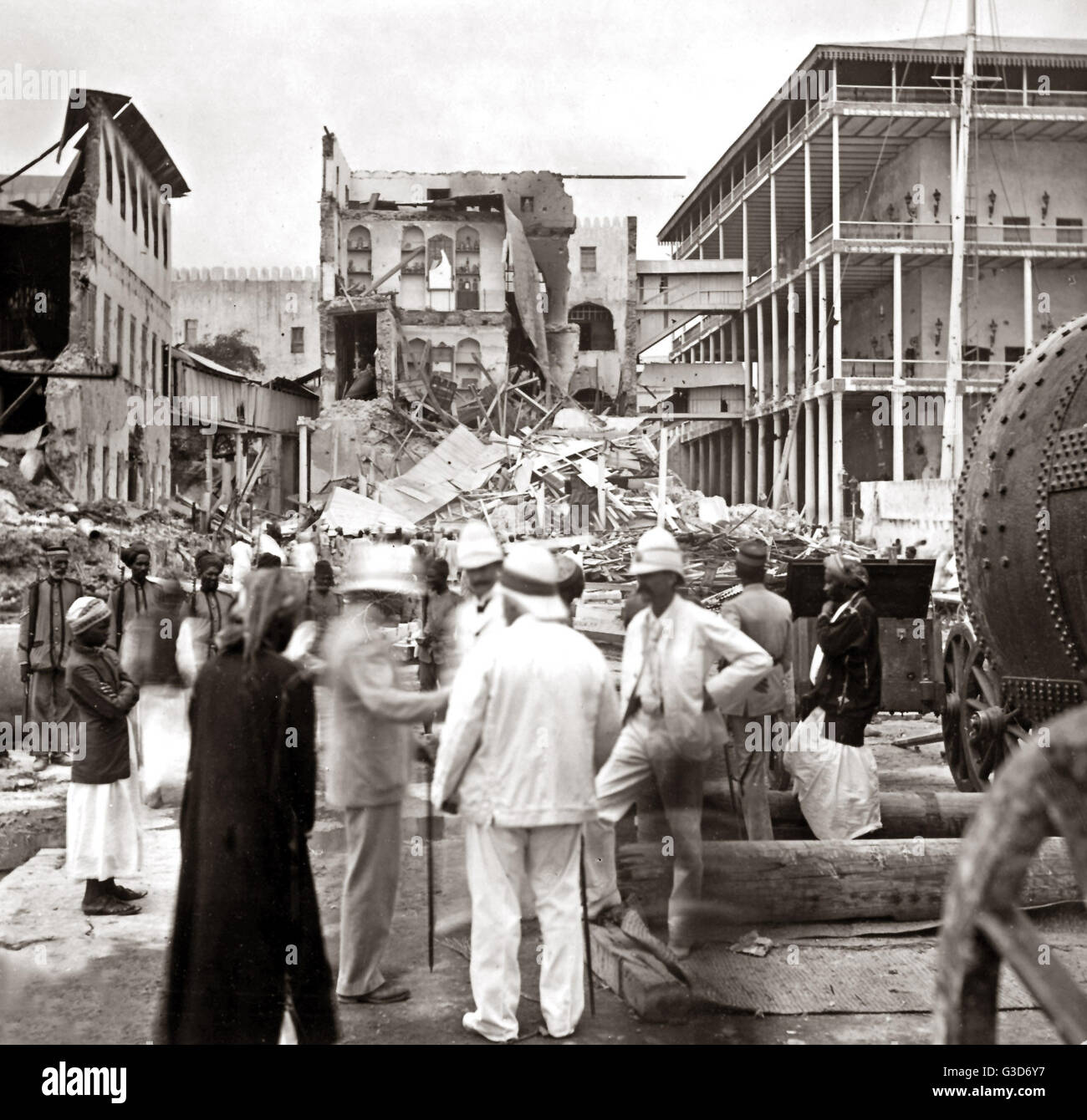The Hour of Thunder: Unraveling the Swiftest War in History (Also Me)
"Have you ever pondered upon the briefest recorded war in history? It might astonish you that it endured for less than an hour, involving two vastly unequal adversaries: the British Empire and the Zanzibar Sultanate. In this article, I will narrate the tale of this concise yet captivating conflict, its origins, repercussions, and the lessons it imparts.
The Historical Context
Zanzibar, situated off the East African coast, was once a thriving and affluent trading center. In the 19th century, it fell under the dominion of the Omani Empire and later became a British protectorate. The British held considerable sway over Zanzibar's affairs, favoring a cooperative and amicable sultan on the throne. In 1893, they established Hamad bin Thuwaini as the sultan, a ruler with pro-British inclinations.
Regrettably, under suspicious circumstances, Hamad's demise on August 25, 1896, raised many eyebrows. There is widespread belief that he fell victim to poisoning orchestrated by his cousin, Khalid bin Barghash, who hastily assumed power, proclaiming himself the new sultan. Khalid harbored an aversion towards the British and sought to assert his autonomy. He commanded a substantial force, comprising approximately 2,800 troops, an array of artillery, and a royal vessel.
The British expressed discontent over these events, demanding Khalid's abdication in favor of their chosen sultan. An ultimatum was dispatched, setting a deadline of 9:00 AM on August 27 for Khalid's compliance or else face the repercussions. Khalid, however, resisted surrender and instead prepared for confrontation. He fortified himself within the palace, positioning troops and artillery in strategic locations.
The Conflict
The British stationed a formidable naval fleet in Zanzibar's harbor, comprising five warships, 150 marines, sailors, and 900 local allies. Rear-Admiral Harry Rawson led this force, armed with orders from London to employ force if necessary. As soon as the ultimatum expired at 9:02 AM on August 27, Rawson signaled for action.
British vessels unleashed a torrent of shells and bullets towards the palace and its environs. Flames engulfed the palace, resulting in numerous casualties among Khalid's forces. The royal vessel sank, and two additional boats were obliterated. Although some shots were directed towards British troops on land, they proved ineffective.
The conflict concluded within minutes. By 9:40 AM, the British flag flew atop the palace. The British secured a resounding triumph, with only one sailor sustaining injury. Khalid sought refuge in the German consulate, subsequently finding asylum. He later absconded to German East Africa (now Tanzania), where he remained in exile until his passing in 1927.
The Aftermath
The British appointed Hamoud bin Mohammed as Zanzibar's new sultan, a ruler more aligned with their interests. They also levied a substantial fine on Zanzibar to cover the costs of the war and curtailed its autonomy. This conflict marked the conclusion of Zanzibar's sovereignty and its integration into the British Empire.
The war exerted notable international ramifications. The Germans expressed discontent with the British intervention, viewing it as an encroachment on their sphere of influence in East Africa. While they lodged protests with London, they refrained from direct military involvement. Nevertheless, they utilized the incident as a pretext to bolster their presence and assertiveness in the region, contributing to the tensions that culminated in World War I.
The Takeaways
The Anglo-Zanzibar War, though seemingly a marginal historical episode, imparts crucial lessons for contemporary times. Consider the following:
Power doesn't always correlate with size or duration. The British demonstrated their ability to overcome a significantly larger and longer-standing adversary through superior technology and strategy.
Diplomacy should always precede conflict. The war might have been averted had both parties been more amenable to negotiation and compromise.
History abounds with unforeseen turns. This war serves as a reminder of history's unpredictability and capacity to confound expectations.
History is replete with captivating narratives. The war stands as a testament to history's potential to enthrall and captivate."
The Anglo-Zanzibar War, a fleeting yet pivotal clash, offers us more than just a glimpse into a bygone era. It impels us to reflect on the timeless lessons it imparts. From the unforeseen might of innovation to the enduring value of diplomacy, this historical episode remains a beacon of insight. As we navigate the currents of our own times, let us not forget that in the annals of history, even the briefest moments can echo with profound significance, reminding us that the past is not only a chronicle but a compass for the present and future.
Peace Out

Comments
Post a Comment